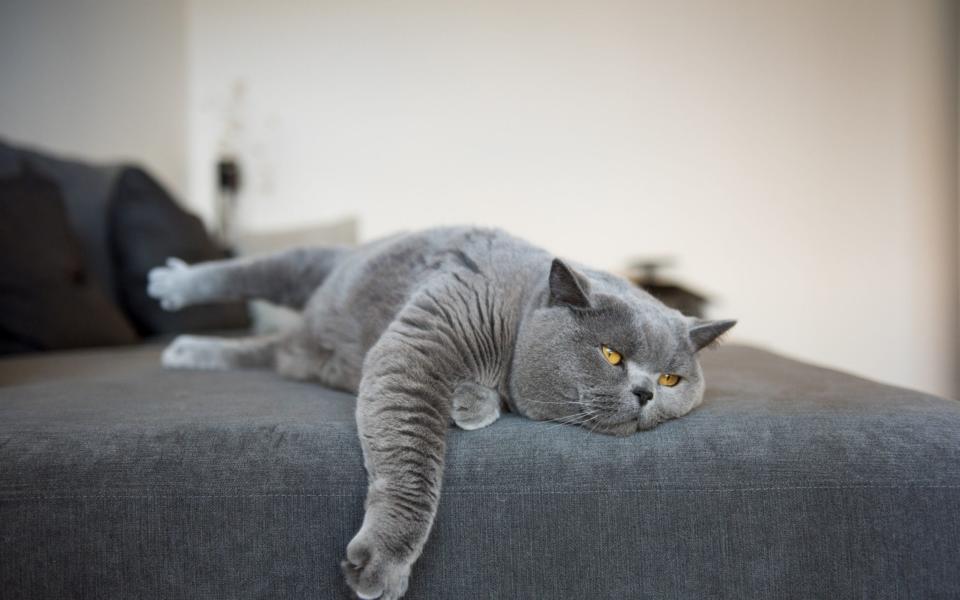Cats are happier if they are only fed once a day, mimicking feeding behaviour of wild counterparts, study finds

Cat-owners will be familiar with the plaintive mewls that come just before feeding time, and sometimes throughout the day.
While some may think this could be a reason to put out more kibble for the hungry feline, scientists have found that feeding cats just once a day, mimicking the behaviour of wild animals, can cause them to feel more sated and be less likely to bother their owners for food.
New research by the University of Guelph, Canada, has found that feeding cats one large meal a day may help control hunger better than feeding them several times a day.
The study published in the journal PLOS One, revealed that cats that ate one meal a day were more satisfied, which could result in less food-begging behaviour.
These findings could be significant for feline health, as well as ending the constant food-begging some cat owners face throughout the day. This is because obesity is one of the main health risks facing domestic cats worldwide.
The research found that cats fed just once a day were more likely to be able to control their appetites and ate less as a result.
Scientists noted big cats in the wild engage in a form of intermittent fasting, feasting when they make a kill and fasting before the next one.
"These findings may surprise the veterinary community and many cat owners who have been told their animals need several small meals a day," said study co-author Prof. Adronie Verbrugghe, a veterinarian with the Ontario Veterinary School's Department of Clinical Studies.
"But these results suggest there are benefits to this approach."
Vets in the UK usually recommend cats are fed two meals a day, one in the morning and one in the evening. Cats Protection recommends feeding small kittens little and often, and adult cats "once or twice a day".
The study involved eight healthy-weight, indoor cats under the age of five. Each cat was exposed to both feeding regimens and each for a total of three weeks, with the same diet and amount being offered in either one meal or four meals. Some of the cats were fed only in the morning, while the others were fed the same amount in four smaller meals.
The cats were equipped with activity monitors on harnesses to measure their voluntary physical activity. Food intake was recorded daily, and body weight was measured weekly. Researchers also measured cat metabolism through breath and blood.
Physical activity was higher in cats fed four times a day, but overall energy expenditure was similar between the groups. The weights of the cats in both groups did not change over the study period, no matter which feeding schedule they were on.
Cats that ate just once a day had higher post-meal levels of three key appetite-regulating hormones, suggesting they were more satisfied. These cats also showed lower fasting respiratory quotient, suggesting they were burning their fat stores, which is key to maintaining lean body mass.
The cats that ate only one meal a day also had a larger increase in blood amino acids, meaning more protein was available to them to build muscle and other important proteins. This is important given that many cats lose muscle mass as they age, a condition known as sarcopenia.
"This approach is really yet another tool in a veterinarian or a cat owner's toolbox for managing a cat's weight and keeping their animals healthy and happy," Prof Verbrugghe added.
"But we always have to look at each individual animal and account for the cat's and owner's lifestyle. So although this approach might be helpful to promote satiety in some cats, it might not help another."

